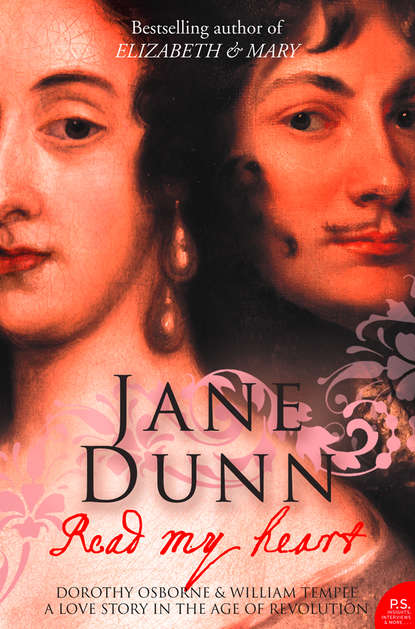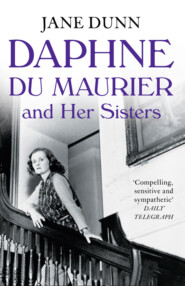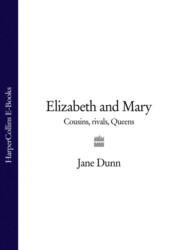По всем вопросам обращайтесь на: info@litportal.ru
(©) 2003-2024.
✖
Read My Heart: Dorothy Osborne and Sir William Temple, A Love Story in the Age of Revolution
Настройки чтения
Размер шрифта
Высота строк
Поля
For the first time, the country was without a king. The Prince of Wales, in exile in The Hague, was proclaimed Charles II but by the early spring the Rump Parliament had abolished the monarchy and the House of Lords. England was declared a commonwealth with all authority vested in the Commons. The brutal suppression of the Irish rebellion continued through the summer with particularly gruesome massacres at Drogheda and Wexford and the following year, 1650, saw the Scottish royalist resistance broken up by parliamentarian forces. Slowly the bloodshed was being brought to an end and life returned to a new kind of normality.
Most important for the Osborne family in unhappy exile in St Malo was the deal they managed to negotiate with the new government whereby they were allowed to return to their estate at Chicksands on the payment of a huge fine, possibly as much as £10,000 (more than a million by today’s value). This concession might have been in part due to some helpful intervention from Lady Osborne’s brother, the talented garden planner and member of parliament Sir John Danvers. He had become one of Cromwell’s loyal colleagues who served on the commission to try the king and, unlike many, had not baulked at putting his signature to the infamous death warrant. In February 1649 he was appointed one of the forty councillors of state of the new commonwealth, a position he kept until its dissolution in 1653. Dorothy and her mother had stayed with him in his house in Chelsea when she was younger and it is likely he would have exerted whatever influence he could to have their ancestral home restored to them at whatever cost.
So Dorothy and her family returned to Bedfordshire, their lives completely changed and their prospects dimmed. Dorothy’s father was aged and unwell and her mother exhausted by the heavy toll of the last few years of exile, impoverishment and uncertainty. She would only live for another year or so, dying, aged sixty-one, in 1651.
For Dorothy, return to the family home was a mixed blessing. Once again she was subject to the demands made on a dutiful unmarried daughter. After her mother’s death the organisation of the household fell to her, as did the care and companionship of her father. Her favourite brother Robin, who had shared her adventures on the Isle of Wight, was still around and unmarried, as was Henry, eleven years her senior. As men they could come and go at will. Her only sister Elizabeth, the eldest of the family, had married at the age of twenty-six and, after just six years of marriage, died in 1642, before the first civil war. Dorothy was only fifteen at the time and remembered her as a clever bookish girl, cut down far too young, perhaps by puerperal fever, that scourge of childbearing women: ‘my Sister whoe (I may tell you too and you will not think it Vanity in mee) had a great [deale] of witt and was thought to write as well as most women in England’.
(#litres_trial_promo) Dorothy’s eldest brother John had also married and appeared occasionally at Chicksands, the estate he was to inherit on their father’s death.
Dorothy professed herself unconcerned at the loss of her family’s fortune: ‘I have seen my fathers [estate] reduced [from] better then £4000 to not £400 a yeare and I thank god I never felt the change in any thing that I thought necessary; I never wanted nor am confident I never shall.’
(#litres_trial_promo) This was brave talk, for the family’s impoverishment made her marriage to a man of good fortune all the more pressing. The family matchmakers increased their efforts: Dorothy appeared to entertain their ideas but in fact merely procrastinated, prevaricated and in the last resort refused. She found her seclusion on the family estate increasingly tedious. Paying visits to elderly neighbours and keeping all talk small had limited appeal when she had been exposed to adventure and love. ‘I am growne soe dull with liveing in [Chicksands] (for I am not willing to confess that I was always soe),’
(#litres_trial_promo) she admitted.
As a young woman, Dorothy chose to try to live a good life, and while she was unmarried and waiting on her family’s needs this was inevitably a dull one too. She attempted to reconcile her own conduct with the highest standards of her family’s expectations and the precepts of the Bible. She turned to the religious writer Jeremy Taylor, ‘whose devote you must know I am’,
(#litres_trial_promo) for his meditations on how to live a useful Christian life. Yet Taylor, in urging a lofty disregard for public opinion, ‘he that would have his virtue published, studies not virtue, but glory’,
(#litres_trial_promo) accepted that women’s lives were more constrained. Dorothy, like every other young woman of her time, felt she had to be careful of her reputation. Her and her family’s honour, her marriage prospects, her place in society, all depended on it. She explained this rather defensively in a letter to William Temple: ‘Posibly it is a weaknesse in mee, to ayme at the worlds Esteem as if I could not bee happy without it; but there are certaine things that custom has made Almost of Absolute necessity, and reputation I take to bee one of those.’
(#litres_trial_promo)
As an emotionally impetuous young man living with greater freedom of conduct than any young woman of his time, William might have wished that Dorothy was more reckless but in fact she was merely expressing a cast-iron truth that most other young unmarried women in her position had learned from the cradle. Lady Halkett, who was to live an unusually adventurous adult life, was equally obedient and careful while young to avoid accusations of ‘any immodesty, either in thought or behavier … so scrupulous I was of giving any occation to speake of mee, as I know they did of others’.
(#litres_trial_promo)
The social and moral structures of men’s and women’s lives were based on the teaching and traditions of Christian religion and to a lesser extent the philosophy of the classical authors of Greece and Rome. The Church’s view of women was well established and deeply embedded in society’s expectations of human behaviour. The Bible provided the authority. It was read daily and studied closely, making depressing reading for any young woman seeking a view of herself in the larger world. In the Old Testament woman was a mere afterthought of creation. Apart from rare and shining examples, like the wise judge Deborah and the beneficent Queen of Sheba, they had little significance beyond being subjects in marriage and mothers of men. When it reared its head at all, female energy was more often than not duplicitous, contaminatory and dark.
The poet Anne Finch,
(#litres_trial_promo) of a younger generation than Dorothy, still smarted under the limited expectations for girls, comparing the current generation unfavourably to the paragon Deborah:
A Woman here, leads fainting Israel on,
She fights, she wins, she tryumphs with a song,
devout, Majestick, for the subject fitt,
And far above her arms [military might], exalts her witt,
Then, to the peacefull, shady Palm withdraws,
And rules the rescu’d Nation with her Laws.
How are we fal’n, fal’n by mistaken rules?
Debarr’d from all improve-ments of the mind,
And to be dull, expected and dessigned;
… For groves of Lawrell [worldly triumphs], thou wert
never meant;
Be dark enough thy shades, and be thou there content.
(#litres_trial_promo)
A thoughtful girl’s reading of the classics in search of images of female creativity or autonomy was almost as unedifying. Unless they were iconic queens such as the incomparable Cleopatra, women of antiquity were subject to even more containment than their seventeenth-century English counterparts. The main role of Greek and Roman women was as bearers of legitimate children and so their sexuality was monitored and feared. Women had to be tamed, instructed and watched. Traditionally they were expected to be silent and invisible, content to live in the shadows, their virtues of a passive and domestic kind.
Dorothy had certainly grown up unquestioning in her belief in God and duty to her parents, expecting to obey them without demur, particularly in the crucial matter of whom she would marry, and wary of drawing any attention to herself. There was more than an echo down the centuries of the classical Greek ideal: that a woman’s name should not be mentioned in public unless she was dead, or of ill repute, where ‘glory for a woman was defined in Thucydides’s funeral speech of Pericles as “not to be spoken of in praise or blame”’.
(#litres_trial_promo) The necessity of self-effacement and public invisibility was accepted by women generally, regardless of their intellectual or political backgrounds. The radical republican Lucy Hutchinson, brought up by doting parents to believe she was marked out for pre-eminence, insisted – even as she hoped for publication of her own translation of Lucretius – that a woman’s ‘more becoming virtue is silence’.
(#litres_trial_promo)
The Duchess of Newcastle was another near contemporary of Dorothy’s but she was one of the rare women of her age who refused to accept such constraints on her sex. Her larger than life persona, however, and her effrontery in publishing her poems and opinions with such abandon attracted violent verbal assaults on her character and sanity. The cavalier poet Richard Lovelace
(#litres_trial_promo) inserted into a satire, on republican literary patronage, a particularly harsh attack on the temerity of women writers, possibly aimed specifically at the duchess herself, whose verses were published three years prior to this poem’s composition:
… behold basely deposed men,
Justled from the Prerog’tive of their Bed,
Whilst wives are per’wig’d with their husbands head.
Each snatched the male quill from his faint hand
And must both nobler write and understand,
He to her fury the soft plume doth bow,
O Pen, nere truely justly slit till now!
Now as her self a Poem she doth dresse,
Ands curls a Line as she would so a tresse;
Powders a Sonnet as she does her hair,
Then prostitutes them both to publick Aire.
(#litres_trial_promo)
It was no surprise that even someone as courageous and individual as the Duchess of Newcastle should show some trepidation at breaking this taboo, addressing the female readers of her first book of poems published in 1653 with these words: ‘Condemn me not as a dishonour of your sex, for setting forth this work; for it is harmless and free from all dishonesty; I will not say from vanity, for that is so natural to our sex as it were unnatural not to be so.’
(#litres_trial_promo)







